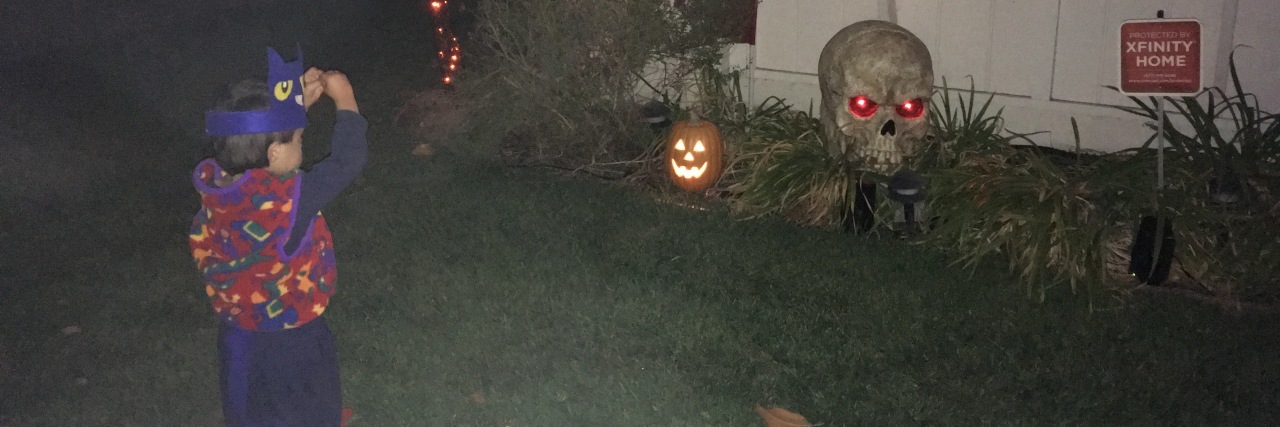My Son With Down Syndrome Had His Own Idea About What Trick-or-Treating Should Be About
This year, my 18-month-old daughter got the hang of trick-or-treating right away. It was her first year doing it and she seemed to instinctively know she was going to get something. Whenever the door opened, she would go right for the candy. If the person offered the bowl to her, she plunged her hand in to pull something out. Even if there was no candy in sight, she extended her hand immediately as if to ask for it. If she could get more than one piece of candy, she did. She was good about signing “thank you” when I prompted her. In many respects, I think my daughter was quite impressive in how quickly she caught on to the whole “ritual.” I can say quite confidently my little child aced it. At just past 18 months, she was confidently climbing the stairs and knocking on doors to get her treat and demonstrating a “thank you” in response.
Yet, it was my 3-year-old son with Down syndrome who impressed me more. He was much more hesitant when the bowl was placed in front of him. He stood there and sometimes moved his arm toward the bowl, but then he pulled his arm back and wouldn’t take anything. We really had to encourage him and sometimes pick a candy piece for him. If someone handed the candy to him he would take it, but he definitely was not in a hurry to reach for it. My son was more intent on visiting with people when the door opened. That was what always captured his attention, much more so than getting candy. The only thing that surpassed his interest in visiting with people was when we went to a house that had a projection in the window of skeletons dancing. He went right up to the window and busted his moves in the middle of the yard. After about 10 minutes, we ushered him along, but he was in no hurry to get to the door for the next piece of candy.
So while hordes of children were pushing each other out of the way to accumulate as much candy as possible, my son was more interested in taking advantage of trick-or-treating as a relational activity to get to know our neighbors and do a dance performance with skeletons. For cultural traditionalists, I’m sure this means nothing, but as someone who thinks that a lot of our cultural traditions could use a little shaking-up as they become more and more about accumulation, I couldn’t have been prouder. My son can instinctively show alternative ways to make this “ritual” more meaningful.
As he gets older, it is likely my son will “get” trick-or-treating as most children do. But I want him to know what he “gets” now is much more significant and impressive than trick-or-treating.
We want to hear your story. Become a Mighty contributor here.

